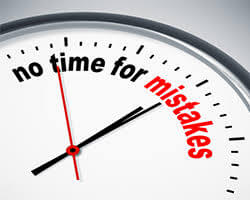Translation mistakes are often costly and embarrassing, but the South Korean government has raised the bar on damaging fallout from poorly translated documents. According to Reuters, For the third time this year, errors in the Korean translation of a free-trade agreement have forced the government to withdraw it, potentially delaying the process of ratification by several months. It’s not yet clear what caused the mistakes in the current FTA between Seoul and Washington, but less than a month ago, the same mishap occurred with the English to Korean translation of a trade pact with the European Union. That document had 207 mistranslations that required correction, and the Minister for Trade Kim Jong-hoon was forced to apologize for “not paying greater and detailed attention.”
How is it possible that so many mistakes passed unnoticed in an incredibly important document? According to Kim, it was due largely to stress on overworked employees. The administration’s goal of ratifying the FTA by the end of April may have put too much pressure on their translation teams. Expedited or rush translations are more error-prone, and indeed many of the mistakes involved words being left out or changed from plural to singular. But some of the mistakes also appear to be the result of poor word choice or lack of understanding. For example, “transplant” was mistranslated as “transfusion” and “epidemiological” as “skin care services.” These errors also occurred despite the fact that the Korean government paid an outside specialist $27,000 to review the translated text of the treaty.
How can South Korea remedy the situation? One parliament representative is calling for the creation of a committee to examine whether agreements have been translated properly. The lawmakers themselves would proof the documents to ensure that they have been translated correctly. This seems fairly extreme. A better alternative would be hiring an outside translation service specializing in English to Korean translations . Outsourcing translation services might not be popular with government employees, but it might save South Korea quite a bit of money – not to mention embarrassment – in the long run.


